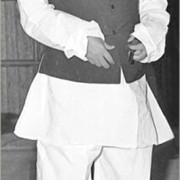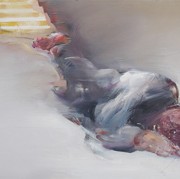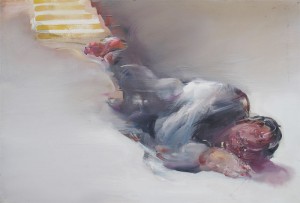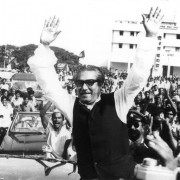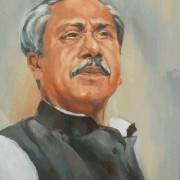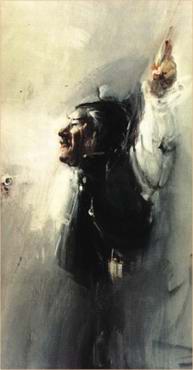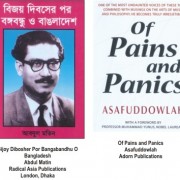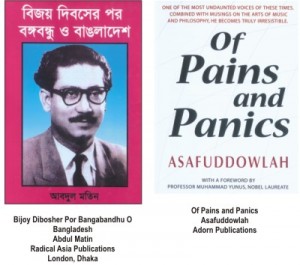A Golden Age
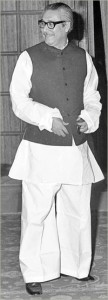 In December of 1970, Sheikh Mujibur Rahman’s party, the Awami League, wins elections in Pakistan with a clear majority. However, the victory of Awami League, a major political party in East Pakistan, is not acceptable to those in West Pakistan.
In December of 1970, Sheikh Mujibur Rahman’s party, the Awami League, wins elections in Pakistan with a clear majority. However, the victory of Awami League, a major political party in East Pakistan, is not acceptable to those in West Pakistan.
There is widespread opposition in the Pakistani military and the Islamic political parties to Mujibur becoming Pakistan’s prime minister. Zulfikar Ali Bhutto, leader of Pakistan People’s Party, the largest West Pakistani party at that time, even threatens to boycott the assembly if Mujibur is allowed to form the new government.
As the rift between leaders of East and West Pakistan widens, Mujibur calls for independence of East Pakistan and asks the people to launch civil disobedience campaigns against the West Pakistani regime which had always treated them as third-class citizens. The people of East Pakistan, who were infuriated by the central government’s treatment of the devastating November’s cyclone victims, readily join in.
Following this, then Pakistani president Yahya Khan bans the Awami League, declares martial law and orders the army to arrest Mujibur and other East Pakistani leaders and activists. The ruthless decision, however, forces Mujibur to declare independence of East Pakistan at midnight on March 26, 1971, giving birth to Bangladesh.
Mujibur is later arrested and sent to prison in the West. But this does not quell the tension and the army can do nothing to stop the people, who by that time were determined to liberate Bangladesh from the hands of the authoritarian West Pakistani regime.
Bangladeshi writer Tahmima Anam’s debut novel, A Golden Age, finds its root in this tensed environment, where West Pakistan’s so-called attempt to restore order in Bangladesh results in terror and bloodshed. It is a story of a country at war, where chaos is the order of the day and disappearance and murder of people become everyday affair.
Amidst this situation, Rehana Haque, a widowed mother of two, finds it increasingly difficult to protect her children. Like every mother she has selfish love for them and since she had once been separated from them after her husband’s death she does not want to repeat the same ordeal.
But the war’s intensity is so great, no one can easily isolate or escape from it. As some of the characters of the novel put it: “Everyone is fighting—even people who weren’t so sure, people who wanted to stay with Pakistan.”
Then finally one day, Rehana’s eldest son, Sohail, comes home and says he has joined a clandestine guerilla operation launched by university students.
At first Rehana finds it hard to believe him. Yes, he was the revolutionary type who had posters of Lenin and Che Guevara on his room’s walls. He also recited speeches like ‘Peking or Moscow? Third World Socialism’ and ‘Jinnah: Statesman or Imperialist Demagogue?’ in college. But Rehana never thought her son would go this far. After all, she had always known him as a pacifist, someone who would not rush to join a war.
In this, as in all other things, Rehana tries to veer between “indulgence and censure”. “There was a part of her that wanted to allow her children to do anything—any whimsy, any zeal, any excess,” the author explains. “Another part of her wanted them to have nothing to do with it all, to keep them safe, at home.”
Rehana chooses the former and allows Sohail to go to war. In the meantime, her daughter, Maya, who had also joined the revolution, moves to Kolkata in India to work for a newspaper, which was supporting the Bangladeshi independence movement.
At this juncture, Rehana finds herself all alone in the house. Instead of Sohail and Maya, she starts living with talks about whereabouts of Mujibur and Anwar Sadaat and uproar, in the city or beyond, in Islamabad, where one punishing law after another was passed. “And every hiccup of the political landscape made its way to their door,” Tahmima writes.
A Golden Age is a story about a mother trying to keep her family intact during war. It is about the contribution made by a liberal middle-class Muslim family—living in harmony with Hindus—in liberating Bangladesh from the hands of Pakistan. It is a story about curfew sirens, empty streets, closed shops, locked gates, a burned and blistered city. At the same time it is also a story about courage and sacrifices, where mothers lose their children, wives mourn the death of their husbands and friends bury their fellow companions.
However, to give a light flavour to the gripping story the writer also talks about the love life of central character, Rehana, with a former army major who stays in her house for 96 days to recuperate from a major injury. She also talks about delicious foods like, paratha, samosa and puri and old Hindi as well as some English songs to give a breezy touch.
Tahmima’s style is sure and sharp, studded with illuminating images. She has not gone to the extent of over-explaining her characters and the novel’s plot is not monotonous.
Try the novel and you will have a sound knowledge on how Bangladesh emerged as an independent country in the 1970s. The book will also give you an insight into the strong ties that Bangladeshi family members maintain that provide them support in times of trouble. Moverover, it also gives you a bird’s eye view of Bangladeshi culture, their idea of merrymaking and their fondness for food.
Author : Rupak D Sharma

